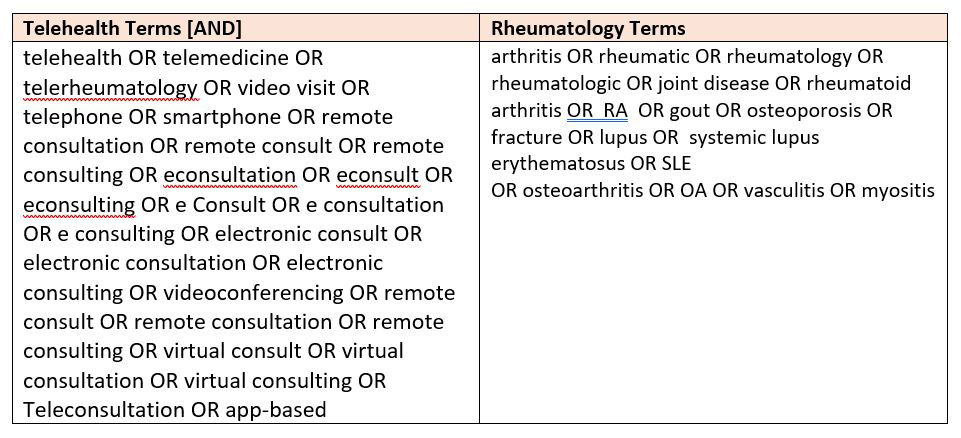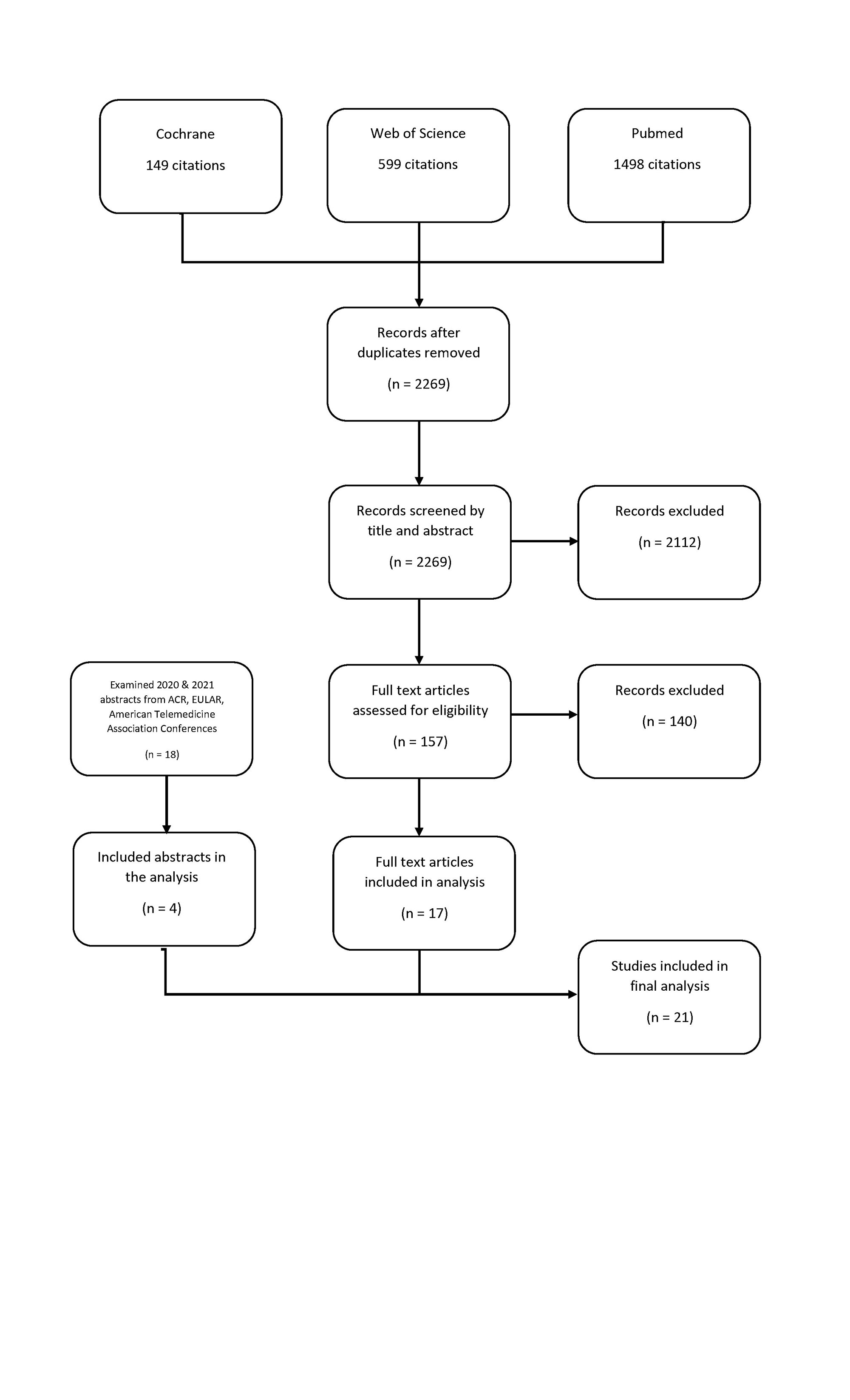Session Information
Session Type: Poster Session B
Session Time: 9:00AM-10:30AM
Background/Purpose: Home based telehealth (HBT) visits, where a patient is located at home with a remote provider, became common during the COVID-19 pandemic. Patients now request HBT, even though in-person visits are possible. We conducted a systematic literature search with narrative synthesis on the use of HBT in rheumatology with the aim of informing the clinical practice of rheumatology using HBT.
Methods: We searched Cochrane, PubMed, and Web of Science databases using a pre-defined search strategy (Figure 1). A total of 2269 articles were retrieved and then subjected to further review (Figure 2). Two independent reviewers assessed whether the articles specifically addressed our objectives of determining HBT suitability, choosing telehealth-appropriate disease outcome measures, and identifying instruments suitable for measuring patient acceptance of HBT. Data was then extracted for a narrative summary and gap analysis.
Results: Seventeen studies and four abstracts met inclusion criteria and were included in the synthesis. Study heterogeneity precluded a meta-analysis. The key findings were as follows: Two studies support the use of pre-visit triage for new patients with inflammatory back pain and for early inflammatory arthritis by using telephone survey tools and enrolling Spondyloarthropathy patients for inflammatory back pain and rheumatologist-diagnosed inflammatory arthritis patients as control groups, respectively. Two survey studies reported providers had good acceptance of HBT for stable patients compared to more active patients or more complex presentations. Four studies reported successful use of remotely collected disease activity measures and PROs and reported concordance between PROs (RAID and RAPID3) with DAS-28 in low disease activity but not higher disease activity states. Another study supported the use of protocolized serum uric acid management in gout via telehealth visits. Two studies examined reported that telehealth satisfaction was generally high but was lower with increasing patient age.
Conclusion: A systematic literature search for articles addressing HBT in rheumatology provides useful, albeit limited, data as to how HBT can safely and effectively complement in-person care for certain rheumatologic conditions, particularly inflammatory arthritis, and gout. The data also provides some guidance on the appropriate selection of patients for telehealth. Further, the data highlights key gaps that future research should address such as creating strategies to identify patients whose health needs can be adequately addressed by HBT and optimizing methods to collect PROs and disease activity measures during HBT.
To cite this abstract in AMA style:
Peck A, Grainger R, Curtis J, Cush J, Soares N, Davuluri N, Nowell W, Sodhi S, Grauer D, Fortune N, Venkatachalam S, Kirby D, Alper J, Gavigan K, Stradford L, Curtis D, Venuturupalli S. Home-Based Telehealth in Rheumatology: A Systematic Review & Narrative Synthesis [abstract]. Arthritis Rheumatol. 2022; 74 (suppl 9). https://acrabstracts.org/abstract/home-based-telehealth-in-rheumatology-a-systematic-review-narrative-synthesis/. Accessed .« Back to ACR Convergence 2022
ACR Meeting Abstracts - https://acrabstracts.org/abstract/home-based-telehealth-in-rheumatology-a-systematic-review-narrative-synthesis/


